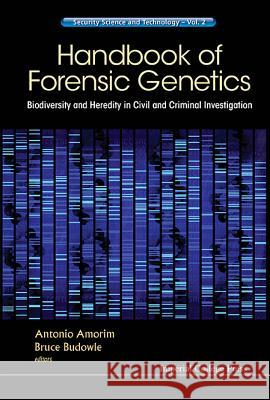Handbook of Forensic Genetics: Biodiversity and Heredity in Civil and Criminal Investigation » książka
Handbook of Forensic Genetics: Biodiversity and Heredity in Civil and Criminal Investigation
ISBN-13: 9781783268344 / Angielski / Twarda / 2016 / 300 str.
Handbook of Forensic Genetics: Biodiversity and Heredity in Civil and Criminal Investigation
ISBN-13: 9781783268344 / Angielski / Twarda / 2016 / 300 str.
(netto: 398,19 VAT: 5%)
Najniższa cena z 30 dni: 417,27 zł
ok. 22 dni roboczych.
Darmowa dostawa!
The use of genetics for the resolution of legal conflicts has recently been gaining a higher profile, largely as a result of scientific and technological advancements and the substantial broadening of applications. The theoretical framework underlying forensic genetics is the same irrespective of the materials and technology involved, however a great divide still exists in the manner and processes related to human and non-human analyses.This advanced handbook intends to overcome the historical barriers between the scientific fields of legal medicine, biodiversity and conservation, and food analysis by presenting a unifying, global perspective on the implications of genetic analyses on forensic affairs. This global perspective is presented in three parts: modes of inheritance and reproduction and taxonomic implications; current technological approaches and future perspectives; and a comprehensive systematization of the types of applications and organisms. Finally, a critical revision of the current investigative/expert systems and future perspectives is undertaken.This book provides a collection of international research, thereby constituting a reference platform for the forensic community and an advanced textbook for graduate students. It encompasses the theoretical bases of the field, and presents in the context of both perspectives of forensic action — probative and investigative — a comprehensive coverage of the current applications and technological state of the art.











